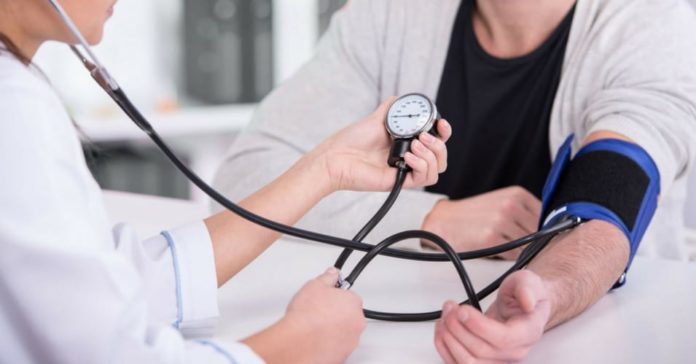We all know that keeping up with our health is important, but sometimes it’s hard to know where to start. Whether you’re a teenager just starting out in life, or a busy adult juggling work and family responsibilities, these check-ups will help you stay on top of your health.
So take some time to read through this list and see which ones apply to you—then make an appointment with your doctor and get started.
1. Blood Pressure
Your blood pressure is a measure of the force that your heart exerts on the walls of your arteries as it pumps blood through your body. High blood pressure, or hypertension, can lead to various health problems, including heart disease, stroke, and kidney failure.
Therefore, it’s important to get your blood pressure checked regularly and practice lifestyle changes that can help keep it under control. Some lifestyle changes that can help keep your blood pressure in check include eating a healthy diet, maintaining a healthy weight, getting regular exercise, and avoiding tobacco use.
If you have high blood pressure, your doctor may also recommend medications to help lower it. Work with your doctor to determine how often you should have your blood pressure checked and your target blood pressure.
If you don’t have high blood pressure, check your blood pressure at least once every two years. Keep in mind that making lifestyle changes can take time, so don’t get discouraged if you don’t see an immediate drop in your blood pressure. Just keep at it, and you’ll eventually see results.
2. Blood Sugar Test
A blood sugar test is an important way to check your health. High blood sugar can be a sign of diabetes, so it’s important to get tested if you think you might have diabetes. A blood sugar test can also help you determine if you’re at risk for diabetes. If you have diabetes, you can manage it with medication, diet, and exercise.
If you don’t have diabetes, you can still get tested for high blood sugar. A blood sugar test is a simple test that you can get done at your doctor’s office. You will need to fast for eight hours before the test, so it’s best to schedule it for early in the morning. During the test, a nurse will take a small blood sample. The test results will be ready in a few days.
3. Dental Checkup
It’s important to visit the dentist regularly, not just when experiencing pain or a problem.
According to Putney Dental, you should visit a general dentist for a checkup at least twice a year. Visiting a general dentist will help maintain your oral health, while also providing recommendations on the best products that will benefit your teeth.
Don’t wait until you have a toothache to visit the dentist—schedule regular checkups to keep your smile healthy and bright!
4. Skin Check
As we age, our skin becomes thinner and less elastic. This makes us more susceptible to cuts, scrapes, bruises, and even skin cancer. A skin check is a quick and easy way to catch any potential problems early.
Your doctor will examine your skin from head to toe, looking for any size, shape, or color changes. They will also look for any new moles or growths. If anything looks suspicious, they may take a biopsy to rule out cancer.
Skin cancer is the most common type of cancer in the United States. But it is also one of the most treatable if caught early. So don’t delay in getting a skin check if you’re due for one.
In addition to a skin check, your doctor may also recommend having a mole mapping done. This is a more detailed examination of your skin and can help catch any problems that a regular skin check might miss.
If you have any concerns about your skin or are due for a check-up, be sure to talk to your doctor. They can help put your mind at ease and make sure you’re as healthy as possible.
5. Cervical Cancer Screening
All women between 21 and 65 should get a Pap test to screen for cervical cancer. The Pap test can detect changes in the cervix cells, which could lead to cancer.
If you are over the age of 30, you may also need an HPV test. HPV is a virus that can cause abnormal changes in the cervix cells, which can lead to cervical cancer.
It would be best to talk to your doctor about how often you need to be screened for cervical cancer. If you have had a hysterectomy (surgery to remove the uterus), you may not need to be screened for cervical cancer. Talk to your doctor about whether you still need to be screened.
6. Cholesterol
High cholesterol is a risk factor for heart disease, stroke, and other health problems. To check your cholesterol levels, your doctor will order a blood test. It would help if your cholesterol were checked at least once every five years, starting at age 20.
If you’re over the age of 20, ensure to get your cholesterol checked more frequently to help reduce other risk factors for heart disease. If your cholesterol is high, your doctor may recommend lifestyle changes and/or medication to help lower it. If you have other risk factors for heart disease, your doctor may recommend more frequent testing.
Conclusion
It’s important to keep up with your health and get regular check-ups. These six check-ups are essential to reduce the risk of developing serious health conditions.
Talk to your doctor about which check-ups are right for you, and schedule them into your calendar. This will go a long way to help you catch any health problems early and keep yourself healthy.

















